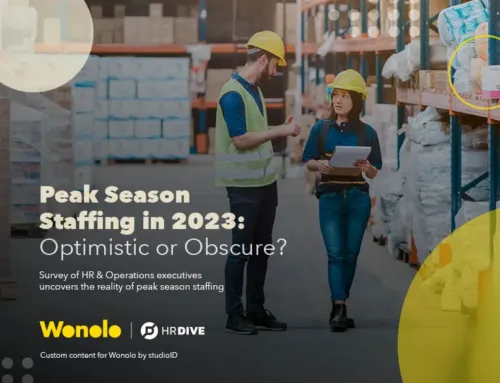Lori Macias
There Are Plenty of Available Jobs, But Where Are the Workers?
According to statistics from the U.S. Bureau of Labor, the number of job openings in the U.S. increased to 10.1 million by the end of June 2021, while hires rose to 6.7 million and total separations (including quits, layoffs and discharges) jumped to 5.6 million.
In other words, there are more jobs available than workers to fill them, paving the way for a labor shortage that could lead to supply chain disruptions and other significant effects on the economy. But there were signs of a potential labor shortage even before the pandemic. For example, total separation rates across a variety of industries have increased steadily over the last five years, slowly widening the gap between available jobs and available workers.
In an effort to bridge that gap, 26 states announced they would stop paying additional unemployment benefits ahead of the September 6, 2021 deadline. The question is, did terminating the benefits early get people to return to work in higher numbers? Let’s look at some data.
Did Ending Benefits Early Get Workers Back to Work?
In states where benefits ended early, only one out of every eight workers who lost their benefits found a new job, according to findings from a team of economic researchers based at Columbia University, Harvard University, the University of Massachusetts Amherst, and the University of Toronto.
Using real-time, anonymous banking data, the research team was also able to determine a negative financial impact due to early termination of the benefits. Spending fell by 52 cents for every dollar of reduced benefits, and only 7 cents of new income was found for each dollar of lost benefits.
Additional research from Homebase found states that ended the unemployment benefits early saw a 0.9 percent decrease in unemployment. However, in states that kept the additional benefits, employment increased by 2.3 percent.
Unemployment benefits aside, there are other issues that are causing workers concern about returning to work.
The Reason Some Workers Aren’t Working
Affordable childcare options, transportation concerns and other obstacles have made it much more difficult for workers to return to work and resuscitate an economy that continues to struggle under the weight of the pandemic. Some workers remain concerned about returning to work amidst rising COVID-19 cases. This call center employee in Reno, Nevada, quit her job because she felt her employer didn’t do enough to ensure employee safety.
But things could be changing for the better. Economists at Morgan Stanley have noted that children returning to in-person learning should allow people who stayed at home for childcare reasons to return to the workforce.
There has also been a wave of companies across different industries, including food service and manufacturing, that are raising their wages to attract workers.
But what do you do if you need frontline workers now?
Wonolo Can Help You Find Available Workers in Minutes
Wonolo provides an unmatched online job marketplace for companies across the country to connect with temporary workers available in their areas. Wonolo is unique in that its online platform enables companies to instantly post job requests and find locally available workers in minutes. It’s a formula that is helping to shape the future of work.
Just ask Driveline, a company that provides insights-driven retail merchandising services to many Fortune Top 100 retailers. Driveline experienced a huge surge in demand during the COVID-19 outbreak, and turned to Wonolo to help fulfill urgent requests from multiple customers for projects requiring up to 50 people each.
Visit Wonolo’s website to learn how a partnership with Wonolo can help you find the workers you need right now.
*The information provided on this webpage is for general information purposes only and should not be viewed as tax, accounting, legal, financial, or other professional advice. All information provided on the site is provided in good faith, however Wonolo Inc. does not make any representation or warrant of any kind, express or implied, regarding the accuracy, adequacy, validity, reliability, availability or completeness of any information in this article. You should not act upon the information contained in this article without seeking the advice of an accountant, financial planner, or other appropriate professional.






